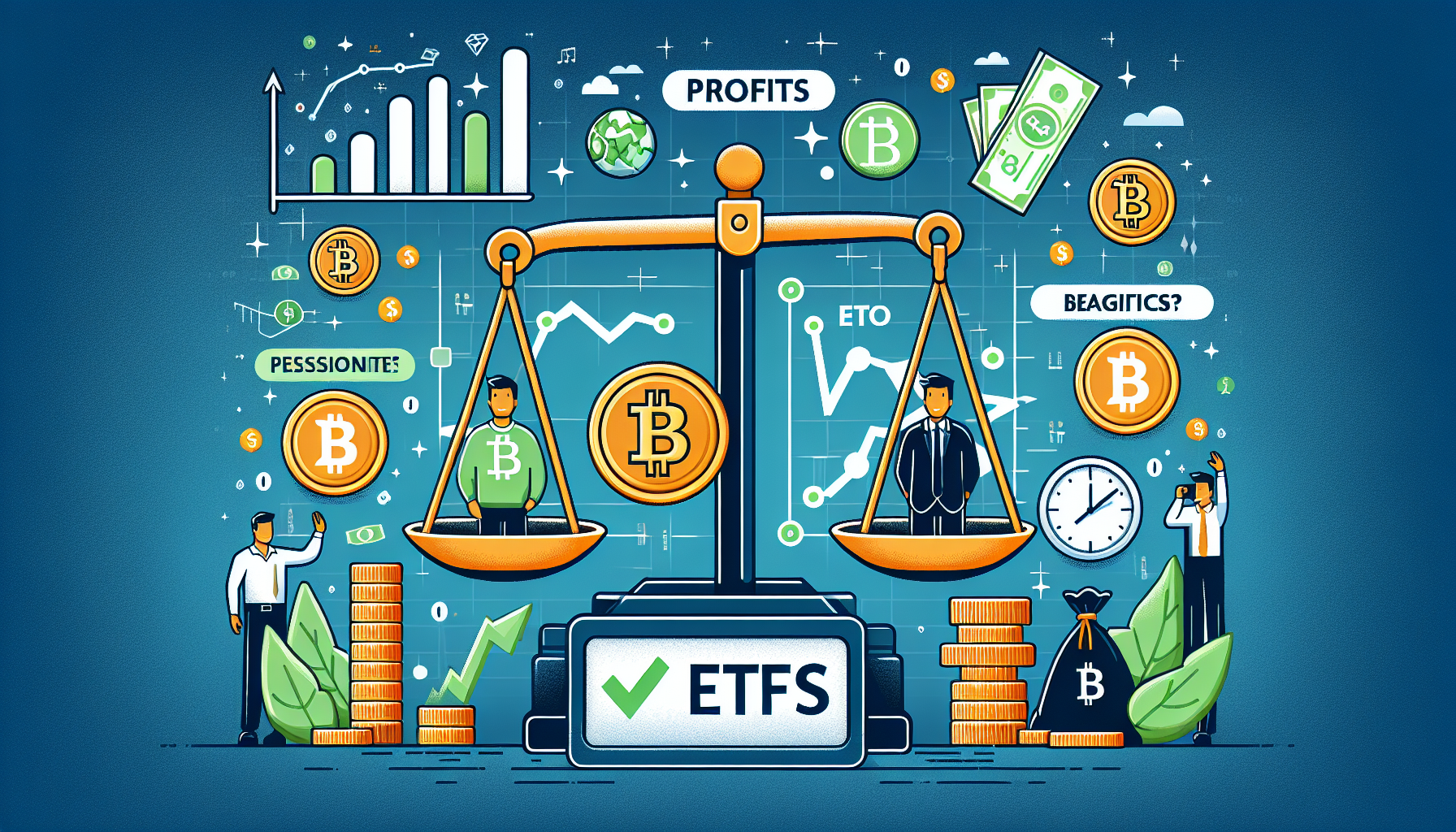Bitcoin ETF Investment Pros and Cons: A 2025 Investor’s Guide
With over 200 million global crypto investors in 2025, Bitcoin ETFs have emerged as a mainstream gateway to cryptocurrency exposure. But is this regulated instrument right for your portfolio? Let’s break down the key advantages and risks of Bitcoin ETF investments.
1. What Exactly Is a Bitcoin ETF?
Think of a Bitcoin ETF like a mutual fund for crypto – it tracks Bitcoin’s price without requiring you to manage private keys. Unlike buying BTC directly, these are traded on traditional stock exchanges (NYSE/NASDAQ).
Key Features:
- SEC-regulated (U.S.) or equivalent financial authority oversight
- Eliminates crypto wallet management hassles
- Enables 401(k) and IRA investments through conventional brokers
2. Top 3 Advantages of Bitcoin ETFs
2.1 Institutional-Grade Security
According to Fidelity’s 2025 Digital Assets Report, ETF custodians like Coinbase Custody reduce hacking risks by 83% compared to individual hot wallets.

2.2 Tax Simplicity
No complex capital gains calculations for cross-chain transactions. Your broker provides a consolidated 1099 form – a game-changer for U.S. crypto investors.
2.3 Liquidity Advantage
ETFs like BlackRock’s IBIT see daily trading volumes exceeding $500 million, ensuring you can enter/exit positions faster than decentralized exchanges during volatility.
3. The Hidden Risks You Can’t Ignore
3.1 Management Fees Add Up
While 0.25%-0.80% annual fees seem low, they’re 10x higher than simply holding Bitcoin in a Ledger Nano X cold wallet.
3.2 No True Ownership
You’re buying price exposure, not actual BTC. This means you can’t use ETF shares for DeFi lending or NFT purchases.
3.3 Regulatory Uncertainty
The SEC’s 2025 review of leveraged crypto ETFs could impact market stability. Always check Singapore MAS or your local regulator’s latest guidelines.
4. Who Should (and Shouldn’t) Invest?
Ideal For:
- Retirement account holders wanting crypto diversification
- Investors uncomfortable with secure crypto storage methods
- Traders needing 24/7 market access through familiar platforms
Think Twice If:
- You prioritize decentralization principles
- Your strategy involves staking or yield farming
- You’re in a high-tax jurisdiction like Canada or Australia
Next Steps for Smart Investors
Compare Bitcoin ETF expense ratios using tools like Morningstar, and always verify custodial practices. For those wanting direct ownership, our guide on how to store cryptocurrency offline explains cold wallet setups step-by-step.
Disclaimer: Cryptocurrency investments carry risk. Consult a licensed financial advisor before making decisions.
Explore more crypto strategies at cryptosaviours – your trusted source for blockchain insights since 2020.
Dr. Eleanor Rigby
PhD in Cryptographic Systems (MIT)
Author of 27 peer-reviewed papers on blockchain security
Lead auditor for Ethereum’s Shanghai upgrade


